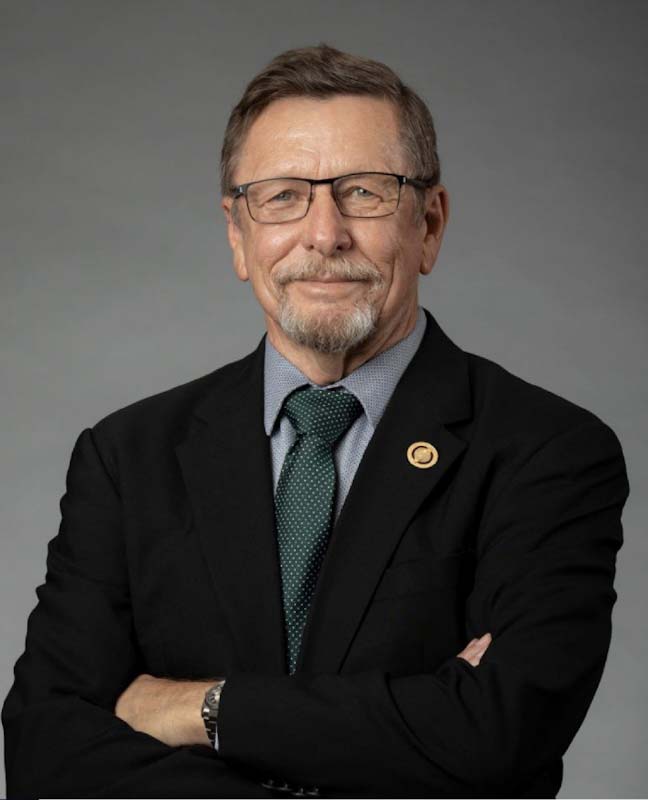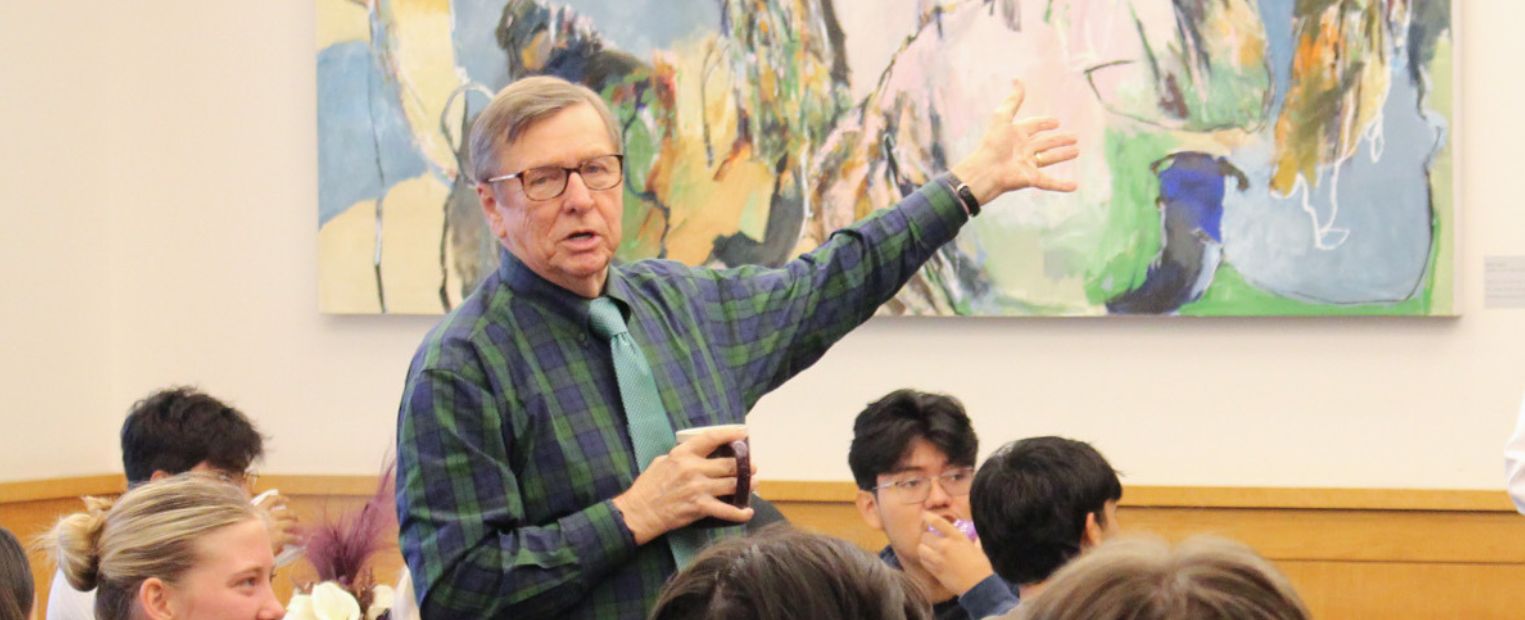T. Dwayne McCay, Ph.D., says his main goal as interim dean is to grow the research profile of TCU’s College of Science & Engineering. His broad experience will surely contribute to the effort. He recently answered a few questions about his vast career, the advice he would give his college-age self, and the importance of focus.

Q: What excites you the most about stepping into this role?
A: I’ve heard of TCU for most of my career, but I never really had the opportunity to engage with it. Since I’m a scientist and somewhat of an engineer, the College of Science & Engineering is a natural fit. It’s a chance to interact with people in those fields, to explore the research happening here, and to get to know a curriculum that’s different from what I’m used to. I love learning, and this is an opportunity to learn a lot and, hopefully, contribute something in return.
I’ve worked all over the country. I’ve worked in industry, in government, at public universities, both large ones and university systems, and at small private schools. I also served as chair of the Independent Colleges and Universities of Florida, which includes about 30 institutions. Many people refer to those as “private” schools, and through that experience, I got a glimpse at a wide range of institutions.
It’s a pretty varied background, and there’s surprisingly little overlap between those environments. I mean, sure, there are similarities, but working in government, in the military, in industry, at a major public university, or a small private college is like entering a new world each time. I’m constantly learning, and I enjoy that.
And I’ve been a little surprised, in a good way. TCU has so many opportunities in front of it, especially being in Fort Worth. I’m still a newcomer, so I can’t judge too thoroughly, but it does seem like there are golden opportunities here that haven’t yet been tapped.
Q: Can you talk about your academic interests and how they’ve influenced your work as a leader?
A: My whole career, I’ve gone from one fun thing to another, and my academic background is kind of the same. I came into academia from NASA and from government space-based research, so I started out with an outside perspective and then came inside. My training is in aerospace engineering, applied math, and physics, which is a pretty broad base. I started out designing wind tunnels, got involved in satellite rocket thruster design, large rocket systems, the space shuttle program, and, at one point, also worked with large chemical systems.
When I came into academia, I saw so many opportunities, and I knew where the funding was, which helped. We never really had trouble securing support for our research, programs, or graduate students. I came in from a different route. While most new assistant professors are grinding away to move up, I didn’t have to go through that. I started out as a full professor. I had been an adjunct, a graduate student, a teacher, so I had most of the academic experience, but I came in from the other side. And that’s a big difference.
My number one goal, as assigned by the provost, is to grow the research profile of the College of Science & Engineering. If you look at R1 universities around the country, their programs are often centered around science and engineering, though medicine and health sciences are incredibly important as well. I want to work with the other colleges at TCU to help build a stronger research profile overall.

Q: What first sparked your interest in science and engineering?
A: When I was a little kid growing up in the cotton fields of Arkansas, I’d watch crop dusters flying overhead and think, “That is so cool, I want to do that.” That led to me getting my pilot’s license and getting involved in aviation, aeronautics, and eventually aerospace. From the beginning, I thought, “Flying airplanes — that’s got to be the greatest thing in the world.” Especially the way those pilots flew.
When I was five or six, I was already obsessed with airplanes. I built model airplanes, dozens and dozens of them, out of balsa wood and plastic. When it came time for college, the path was pretty straightforward. I’ve always followed what seems fun and interesting, and nearly everything is interesting, and most things are fun.
Q: If you could go back in time and give advice to your college-age self, what would you say?
A: It would be the same advice I give myself every day: Focus. I’ve always been a bit interested in everything, and that can be a distraction. You go down one rabbit hole after another.
If I could sit down with myself as a freshman, I’d say, “You’ve got to focus.” I was lucky to have a friend on the wrestling team who tutored me in calculus. That made a huge difference in my life. He was the kind of guy who’d grab you by the neck and say, “Focus. Here’s what you need to do.” If I’d had his level of focus, I think I could’ve been even more successful.
So that’s what I’d tell every incoming freshman: Focus on what you’re doing right now. Don’t worry about what’s happening an hour from now, tonight, or this weekend. Focus on the moment in front of you. That’s what I wish I’d done, and honestly, I still struggle with it. Part of it is just my nature. But that’s probably the best advice I could give.
Q: How do you like to spend your time? Do you have any hobbies or interests?
A: In years past, I spent a lot of time on the tennis court. I did fairly well as a player, and when I was a faculty member, I even worked as a professional tennis umpire. In the summer, I’d officiate on the ATP Tour. I loved it. But after a few knee surgeries, I’m not as into tennis anymore. I still play a little golf, but it’s hard to find time.
I was lucky to marry a woman who made me quit working on Sundays. I used to work eight to 12 hours a day, seven days a week. She said, “That’s it, Sundays are off.” So now, I don’t work all the time, but I still sneak it in when I can. I love the work. I don’t love management as much as I loved being in the lab with students. If you have good postdocs, good Ph.D. students, and good technicians, being a principal investigator becomes pretty easy. I miss that.
Now, my job is to make other people’s lives easier and more successful. That’s very rewarding, but it’s also harder, because I don’t control everything. And I wouldn’t want to control everything, but I do want to help faculty get what they need to succeed.
This fall, I plan to visit every lab in the college. I’m asking every department chair or institute director, “What are the three things we need to do before the end of fall to put your department or institute in a better position to succeed in research?” I don’t want 10 things — I just want three. If we can get three things done in every department this upcoming semester, we’ll be in good shape.
